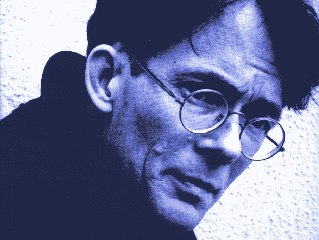![]()
John Robb's analysis of the threats arising from technological runaway leads to a long-anticipated strategic conclusion: Effective defense demands the dismantling of Leviathan.
One striking way-station in Robb's argument:
University of Washington engineer Robert Carlson observes that if current trends in the rate of improvement in DNA sequencing continue, “within a decade a single person at the lab bench could sequence or synthesize all the DNA describing all the people on the planet many times over in an eight-hour day.”

OK, Gibson always said the future was already here ("it's just unevenly distributed"), but according to this interview, his new novel Spook Country is set in the near past.
Does that mean, as Glenn Reynolds asks, that we've already crossed over "into the Singularity?"
Gibson:
The trouble is there are enough crazy factors and wild cards on the table now that I can't convince myself of where a future might be in 10 to 15 years. I think we've been in a very long, century-long period of increasingly exponential technologically-driven change.
We hit a point somewhere in the mid-18th century where we started doing what we think of technology today and it started changing things for us, changing society. Since World War II it's going literally exponential and what we are experiencing now is the real vertigo of that - we have no idea at all now where we are going.
And from the Amazon link:
Amazon.com: So do you think that's your own career path, that you're less interested in imagining a future, or do you think that the world is changing?
Gibson: I think it's actually both. Until fairly recently, I had assumed that it was me, me being drawn to use this toolkit I'd acquired when I was a teenager, and using my old SF toolkit in some kind of attempt at naturalism, 21st-century naturalistic fiction. But over the last five to six years it's started to seem to me that there's something else going on as well, that maybe we're in what the characters in my novel Idoru call a "nodal point," or a series of them. We're in a place where things could just go anywhere.